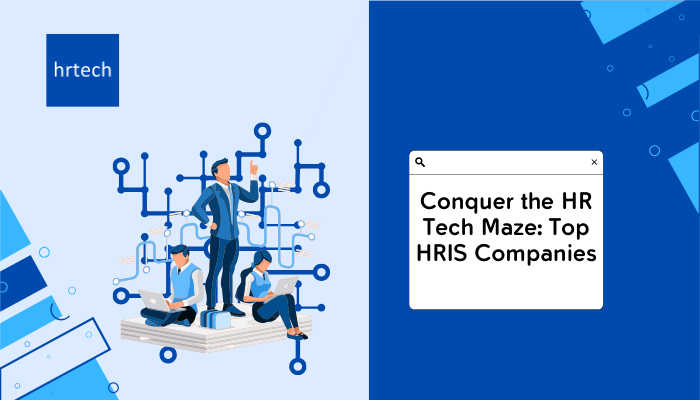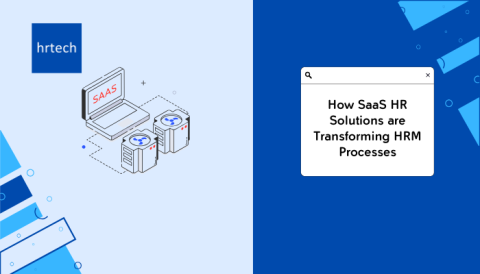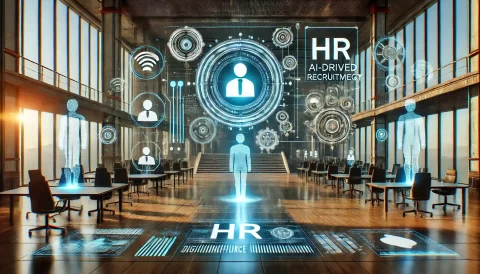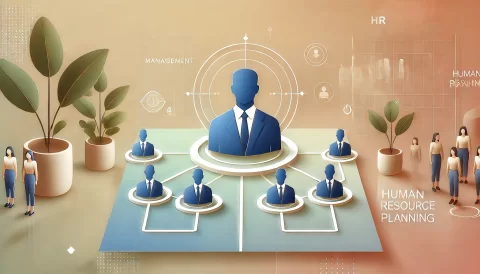In today’s competitive landscape, HR departments are critical in attracting and retaining top talent. However, managing a modern workforce often involves a mountain of paperwork and complex processes. That’s where HRIS systems come in – powerful tools designed to streamline HR tasks and empower your workforce.
According to peoplehum, 80% of HR folks think using HR tech makes employees like the company more. This number is expected to rise in 2024 as businesses increasingly leverage technology to automate tasks, improve data-driven decision-making, and enhance the employee experience.
Introduction:
What’s the HRIS system?
It’s a software solution that centralizes and automates various HR functions, such as:
Payroll and benefits administration
Recruitment and onboarding
Performance management
Time and attendance tracking
Learning and development management
By automating these tasks, HRIS systems free up valuable time for HR professionals to focus on strategic initiatives and employee engagement.
Now, let’s explore how some of the leading HRIS companies can address your specific needs!
Looking for a deeper dive?
We’ll further help you explore each company’s strengths and functionalities in detail, helping you choose the perfect HRIS for your organization.
Key Features of HRIS Systems:
For instance, say you need to update employee benefits information. Traditionally, this could involve stacks of paper forms and endless phone calls. But with an HRIS system, it’s a breeze! Let’s delve into the key features of HRIS and how they transform your HR processes:
1. Automation of HR processes: With HRIS, repetitive tasks like payroll processing, vacation tracking, and expense approvals become automatic. This frees up valuable time for HR professionals to focus on strategic initiatives and employee engagement.
Say you spend hours manually calculating overtime pay for your team. With an HRIS, employees simply clock in and out. The system calculates their hours based on pre-set rules (overtime pay, holiday pay, etc.) and automatically generates accurate payroll. This saves you time, reduces errors, and keeps your employees happy.
2. Integration capabilities with other software: HRIS systems can seamlessly integrate with other business software like accounting systems, time-tracking tools, and learning management platforms. This creates a centralized hub for all your employee data, eliminating the need for manual data entry and ensuring consistency across different systems.
Say you use a separate system to track employee performance reviews. With HRIS integration, performance data can automatically feed into employee profiles, giving you a holistic view of an employee’s contribution.
3. Employee self-service portals: HRIS empowers employees with self-service portals. They can access paystubs, update personal information, request leave, and view company policies, all at their fingertips. This reduces the burden on HR for routine inquiries and fosters a sense of ownership among employees.
An employee needs to update their address for tax purposes. They simply log in to the HRIS portal, make the changes, and submit. The system automatically updates relevant records, eliminating the need for emails and back-and-forth communication.
4. Mobile app functionality for accessibility on the go: With mobile app functionality, HR tasks and employee information are accessible anywhere, anytime. This is especially beneficial for remote workforces and allows for real-time access to important data.
Say, a manager is traveling for work and needs to approve an employee’s vacation request. They can access the mobile app, review the request, and approve it with a tap, ensuring a smooth workflow even when on the go.
5. Comprehensive reports and analytics: HRIS systems generate insightful reports on key metrics like employee turnover, performance trends, and training effectiveness. This data empowers HR professionals to make data-driven decisions and optimize their strategies.
Reports reveal a high turnover rate in a specific department. HR can analyze the data to identify potential causes (workload, compensation, etc.) and implement targeted initiatives to improve employee retention.
Top HRIS Systems for 2024:
1. Hrtech:

Established in Singapore, HR Tech is a leading HR Technology Analyst firm. They boast the largest HR Technology marketplace in Asia & Middle East, acting as a one-stop shop for HR professionals. HR Tech goes beyond just software – they connect HR professionals with a vast array of solutions to transform their processes. This includes talent sourcing, consulting Expertise, learning & Development Resources.
Functions:
Marketplace for HR Solutions (Asia & Middle East): Search, compare, and connect with a wide range of HR technology solutions across Asia & the Middle East.
Talent Sourcing (temporary, contract, permanent placements): Access a pool of qualified candidates to streamline your recruitment process.
HR Consulting: Connect with HR consultants for customized solutions and expert advice on your specific challenges.
Advisory Services: Leverage HR Tech’s advisory services to gain strategic insights and optimize your HR strategy.
Learning & Development Resources: Access a wealth of resources to upskill and empower your HR team.
Price: Pricing varies depending on the specific services used. You can get personalized quotes
Good fit for: HR professionals across Asia & the Middle East seeking a comprehensive platform to address all their HR needs. HR Tech provides a centralized location to find HR solutions, source talent, access consulting expertise, and empower their teams through learning & development resources.
2. Rippling:

Rippling is a modern HRIS solution provider known for its intuitive platform and seamless integration of core HR functionalities.
Functions:
Payroll: Streamline payroll processing with automated calculations, tax filing, and direct deposit.
Benefits: Manage all aspects of employee benefits administration, including health insurance, retirement plans, and paid time off.
Core HR (Onboarding, Employee Self-Service Portal, Performance Management): Simplify onboarding processes, empower employees with self-service options, and facilitate performance management through goal setting and feedback tools.
Time & Attendance (Optional): Integrate time tracking functionalities for accurate employee hours and payroll calculations (offered as an add-on).
Price: $8 per month
Good fit for:
Businesses seeking a unified HRIS for core functionalities: Rippling offers a user-friendly platform that integrates payroll, benefits, onboarding, employee self-service, and performance management. This centralized system streamlines HR workflows and saves time.
Companies looking for seamless integration: Rippling integrates seamlessly with existing business tools, eliminating the need for manual data entry and ensuring data consistency across platforms.
3. Gusto:
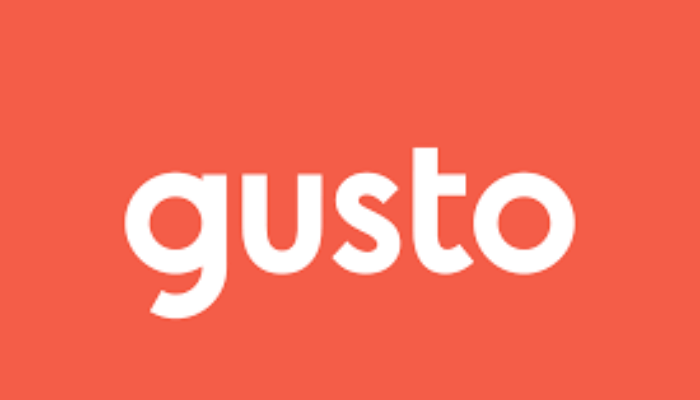
Gusto is a comprehensive HRIS solution for growing businesses and is renowned for its user-friendly interface and compliance focus.
Functions:
Payroll: Manage payroll processing with automated features, tax filing, and direct deposit functionalities.
Benefits: Administer employee benefits effectively, including health insurance, retirement plans, and paid time off.
HR Management (Onboarding, Time & Attendance, Performance Management): Automate onboarding processes, offer employees self-service options for managing their data, track time & attendance (optional), and facilitate performance management.
Compliance Management: Stay compliant with ever-changing tax regulations and labor laws. Gusto automates tax filings and ensures accurate payroll calculations.
Price: $40 per month with flexible plans.
Good fit for:
Businesses prioritizing compliance: Gusto prioritizes compliance features, ensuring companies stay up-to-date with tax regulations and labor laws. This reduces the risk of errors and penalties.
Businesses seeking comprehensive HR features: Gusto offers a robust suite of HR features beyond payroll and benefits, including onboarding, time & attendance (optional), performance management, and compliance management.
Companies looking for a user-friendly interface: Gusto is known for its user-friendly interface, making it easy for HR teams and employees to navigate the platform.
4. BambooHR:
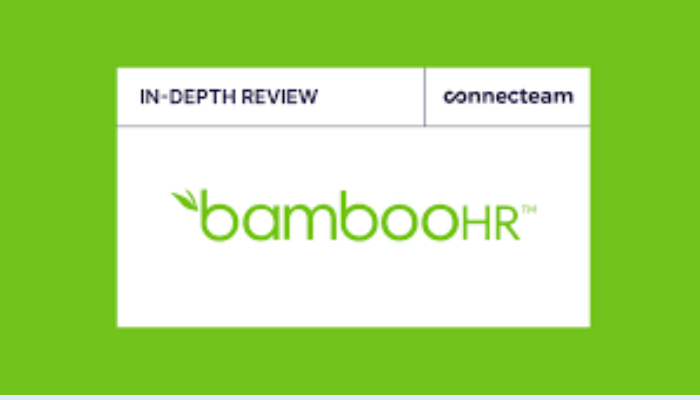
A leading provider for small and mid-sized businesses, BambooHR simplifies HR with its user-friendly and affordable HRIS solution.
Functions:
Onboarding: Streamline the onboarding process for new hires with automated workflows and centralized document storage.
Time & Attendance (Optional): Accurately track employee hours with time tracking features (offered as an add-on).
HR Management (Employee Self-Service Portal, Performance Management): Empower employees with self-service functionalities and facilitate performance management through goal setting and feedback tools.
Benefits Administration (Optional): Manage employee benefits administration, including health insurance and paid time off (offered as an add-on).
Price: Contact to get quotes
Good fit for:
Small and mid-sized businesses: BambooHR’s user-friendly interface and affordable pricing cater specifically to the needs of smaller businesses that don’t require the most complex HR functionalities.
Businesses seeking a user-centric platform: BambooHR prioritizes a user-friendly experience, making it easy for HR teams and employees to onboard, manage their data, and access information.
Companies with specific needs: BambooHR offers optional add-on features like time & attendance and benefits administration, allowing businesses to customize the platform to their specific needs.
5. SAP SuccessFactors:

Renowned for its enterprise-grade scalability and global reach, SAP SuccessFactors is a leading HRIS solution from the software giant SAP.
Functions:
Core HR (Onboarding, Employee Self-Service Portal, Performance Management): Manage core HR processes like onboarding, employee self-service options, and performance management through goal-setting and feedback tools.
Talent Management (Recruitment, Learning Management): Attract and retain top talent with recruitment functionalities and empower employee development through learning management features.
Analytics & Reporting: Gain valuable insights into your workforce with robust analytics and reporting tools.
Price: Pricing varies based on organization size and features needed. You can get quotes by contacting them.
Good fit for:
Businesses of all sizes: SAP SuccessFactors offers a scalable solution that can adapt to the needs of growing companies, from small businesses to large enterprises.
Organizations seeking mobile accessibility: With its mobile app functionality, SAP SuccessFactors ensures real-time access to HR data for both large enterprises and smaller teams on the go.
Companies looking for advanced features: SAP SuccessFactors offers a comprehensive suite of features beyond core HR, including talent management (recruitment, learning management) and robust analytics & reporting capabilities.
Note: Due to its scalability and pricing structure, contacting SAP directly for a personalized quote is recommended.
6. UKG Pro (formerly UltiPro):

Workday is a leading cloud-based HRIS solution provider known for its versatility and ability to scale with businesses.
Functions:
Core HR (Onboarding, Employee Self-Service Portal, Performance Management): Manage core HR processes like onboarding, employee self-service options, and performance management.
Payroll: Streamline payroll processing with automated features, tax filing, and direct deposit functionalities.
Talent Management (Recruitment, Learning Management): Attract top talent with recruitment tools and empower employee development through learning management features.
Financials (integrated): Gain a holistic view of your business by integrating HR data with financial data for deeper insights.
Price: Contact Workday for personalised quote
Good Fit For:
Businesses of all sizes: Similar to SAP SuccessFactors, Workday’s scalability allows it to adapt to the needs of growing companies, from small businesses to large enterprises.
Organizations seeking integrated financials: Workday’s unique integration with financials provides a unified platform for managing HR and financial data, offering a comprehensive view of business performance.
Companies with complex HR needs: Workday offers many features, making it suitable for businesses with diverse HR requirements, including core HR, payroll, talent management, and financial integration.
8. Optimum HRIS:

Optimum HRIS stands out for its dual deployment functionality, catering to businesses that prefer either on-premise or cloud-based HRIS solutions.
Functions:
Core HR (Onboarding, Employee Self-Service Portal, Performance Management): Manage core HR processes like onboarding, employee self-service options, and performance management.
Payroll (depending on deployment option): Payroll functionalities may be included depending on the chosen deployment option (on-premise or cloud).
Benefits (depending on deployment option): Benefits administration capabilities may also vary based on the deployment option chosen (on-premise or cloud).
Price: Contact Optimum HRIS for a quote
Good fit for:
Businesses with specific deployment preferences: Optimum HRIS offers flexibility for companies with existing IT infrastructure or security requirements that necessitate on-premise deployment. They also cater to businesses who prefer the scalability and accessibility of cloud-based solutions.
Organizations with unique needs: Since Optimum HRIS offers different functionalities based on the deployment option, businesses can choose the features that best suit their specific requirements.
Contacting Optimum HRIS directly for a quote is recommended to determine pricing and available features based on your preferred deployment method.
9. Namely:

Namely is a cloud-based HRIS provider known for its robust feature set designed to streamline and expedite HR processes.
Functions:
Core HR (Onboarding, Employee Self-Service Portal, Performance Management): Manage core HR functions efficiently with onboarding, employee self-service options, and performance management tools.
Payroll: Streamline payroll processing with automated features, tax filing, and direct deposit functionalities.
Benefits: Manage employee benefits administration, including health insurance and paid time off.
Talent Management (Optional): Enhance talent management capabilities with recruitment and learning management features (offered as an add-on).
Price: Contact Namely for a quote
Good fit for:
Businesses seeking to streamline HR tasks: Namely’s comprehensive feature set automates many HR processes, saving HR teams time and increasing efficiency.
Companies looking for a user-friendly platform: Namely is known for its user-friendly interface, making it easy for HR teams and employees to navigate the system.
Organizations with evolving needs: Namely offers optional talent management features, allowing businesses to scale their HRIS as their needs grow.
10. Eddy:
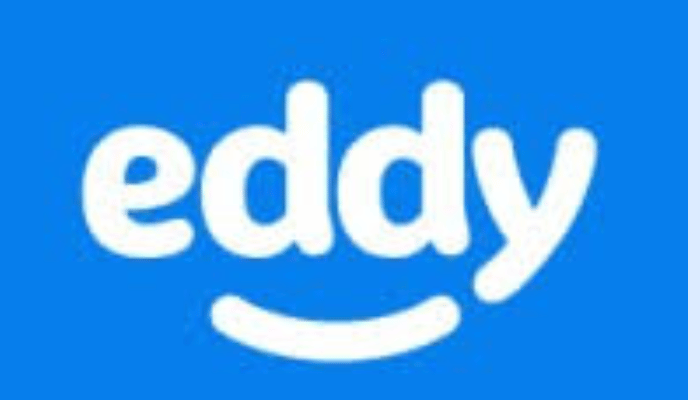
Eddy is a cloud-based HRIS solution designed specifically for startups and small businesses. It offers essential HR management tools at an affordable price point.
Functions:
Core HR (Onboarding, Time & Attendance): Streamline onboarding processes and track employee hours effectively.
Employee Self-Service Portal: Empower employees to manage their data and access information through a self-service portal.
Price: starts at $4 per month/person
Good fit for:
Startups seeking foundational HR functionalities: Eddy offers a user-friendly platform with the core HR tools that startups need to organize their growing teams, such as onboarding and time & attendance tracking.
Businesses on a budget: Eddy’s free plan and affordable paid tiers make it a cost-effective solution for startups and small businesses with limited HR budgets.
Companies with simple HR needs: If your HR requirements are primarily focused on onboarding, time tracking, and employee self-service, Eddy provides the essentials without overwhelming complexity.
Note: Pricing mentioned for various HRIS systems is based on publicly available information and may vary depending on specific features, organization size, and vendor quotes. This information is current as of March 2024.
Transforming HR through Agile Workforce Solutions
HRIS, HRMS, and HCM: Understanding the Differences:
Focus: HRIS acts as the data hub, centralizing core employee information. HRMS expands on this by streamlining core HR processes like payroll and benefits. HCM takes the most comprehensive approach, integrating HR, talent management, and analytics to optimize your workforce and inform strategic decisions.
Features: All three systems manage core HR data. HRMS adds functionalities like payroll and benefits, while HCM offers advanced features like talent management, robust analytics, and compliance management.
Implementation & Cost: HRIS systems are typically easier and less expensive to implement compared to HRMS and HCM. As the systems become more sophisticated with additional features, the implementation cost and complexity increase.
Scalability: HRIS solutions tend to be less scalable for larger organizations with complex HR needs. HRMS offers moderate scalability, while HCM systems are designed to accommodate growth and adapt to the evolving needs of your business.
To summarize these key distinctions, here’s a table that provides a quick comparison of HRIS, HRMS, and HCM functionalities
Conclusion:
In today’s dynamic business landscape, HRIS is no longer optional. It’s the cornerstone of efficient HR operations, streamlining tasks, boosting productivity, and empowering strategic decision-making.
With a vast array of HRIS solutions available, choosing the perfect fit requires careful consideration of your specific needs and future growth plans. Don’t get lost in the options!

